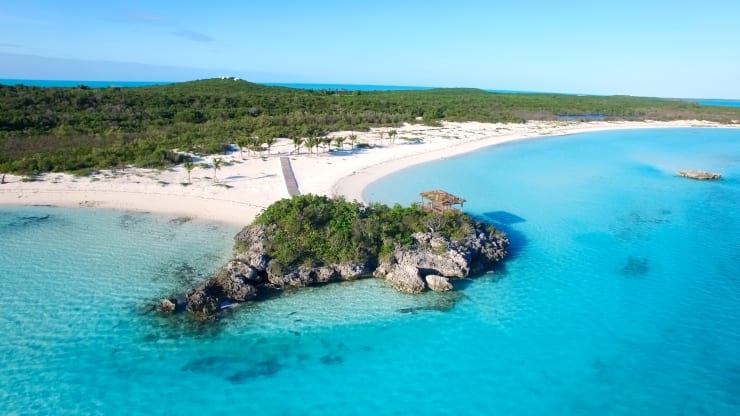While most of us will have to settle for self-isolation in our own home or apartment, the rich are hunkering down in state-of-the-art bunkers and fleeing to private islands to escape the coronavirus.
Rising S Company, which manufactures bunkers and bomb shelters, has seen business increase fourfold when compared to the same period last year, according to CEO Clyde Scott.
While the business is based in the U.S., Scott said he had been receiving calls from all over the world, including countries he had never had enquiries from before, like Croatia. He said the average of cost of the models that clients were currently looking at was $150,000.
Since the outbreak at the end of last year, more than 533,000 people around the world have been infected with the highly-contagious coronavirus, while at least 24,000 people have died, according to data compiled by Johns Hopkins University.
Larry Hall, owner of another U.S.-based bunker maker, Survival Condo, said he had also seen a spike in enquiries due to the outbreak, as many said the coronavirus had made buying a unit more of a priority.
“We usually have to do some level of sales effort to get people to come here for a tour and now the clients seem to have an urgency to their interest,” he told CNBC via email.
Hall mentioned one client who bought a bunker without having physically visited the unit. And though enquiries are coming from the Middle East, U.K., Japan and France, his sales to date have been to American clients working in a range of professions, including doctors and engineers.
The unit prices range from around $500,000 to $2.4 million and include facilities like an indoor pool, gym and even a rock climbing wall.
Private islands
Others have been in search of a bit more open space, choosing to put a seas distance between themselves and the virus, by snapping up their own secluded island.
Gladden Private Island, just off the coast of Belize in the Caribbean, has been particularly popular because it allows “complete privacy,” explained Chris Krolow, CEO of sales and rentals marketplace Private Islands.
Staff stay on a separate smaller island close by and remotely turn on red lights on the bigger island as a signal to let guests know when they are coming over.
“It’s probably the safest place on the planet for anybody wanting to hide from this horrible virus because it’s 20 miles off the mainland, it’s on the reef,” said Krolow.
A stay costs $2,950 per night for two people to rent the entire island.
Another popular spot in the Caribbean is Blue Island in the Bahamas because of its private runway, which Krolow said has seen interest from people with private jets but nowhere to go due to travel restrictions, or maybe looking for a bolthole once airports do open up again in case of future crises.
The 700-acre plot of land costs around $70 million to buy.
Krolow said he had also received an influx of calls last week from people on yachts, literally circling islands “trying to find a safe place to go and willing to pay a premium.”
Private jets and yachts
Some are deciding to stay at sea, however, according to the CEO of broker Burgess Yachts, Jonathan Beckett.
He had booked one seven-week charter and another four-week charter for families opting to see out the pandemic on board a yacht.
Not only will the children be receiving home schooling but will also take cooking lessons with the on board chef and spend time in the engine room to learn more about the technical side of yachting.
For FlyEliteJets CEO Christopher Williams-Martin, business started to pick up on Valentine’s Day, when “it was the first sort of rumor of something quite big that would have an extensive impact on commercial flights etc.”
Williams-Martin said his private jet business started getting calls from existing clients, including former ambassadors.
However, it wasn’t until two weeks ago that he said demand “went through the roof” and saw around 270 enquiries in the space of five days, from the 30 a-week he usually received. Some requests were on behalf of touring music artists wanting to get home before more borders became locked down.
He said demand then ramped up to about 300 enquiries in the space of three or four days.
Williams-Martin said he was hearing reports of “astronomical” fares from some commercial airlines, meaning “suddenly private jets weren’t seen as being unaffordable.”
“Per seat if you filled the aircraft, it was suddenly comparable with a business class fare,” he said.
"Forbes Georgia-ის სარედაქციო ბლოგპოსტების სერია "როგორ გამდიდრდა“ და "საქართველო რეიტინგებში".














